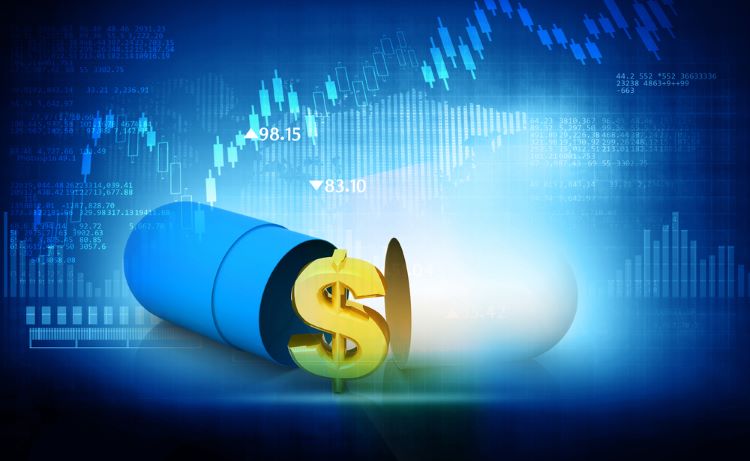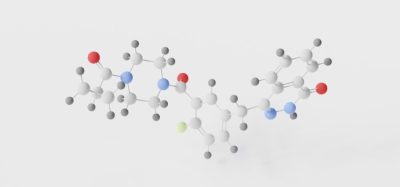Top biopharma firms report Q3 market capitalisation decline
Posted: 6 December 2022 | Catherine Eckford (European Pharmaceutical Review) | No comments yet
The top 20 biopharma companies averaged a market capitalisation decline of $3.45 trillion in Q2 to $3.14 trillion in Q3 2022, says GlobalData.


According to a market report by GlobalData, expanding generic drug competition and a drop in demand for COVID-19 vaccines and therapies have lowered the aggregate market capitalisation of the global top 20 biopharmaceutical companies by 9.1 percent from $3.45 trillion in Q2 2022 to $3.14 trillion in Q3 2022.
GlobalData’s Pharmaceutical Intelligence Center Companies Database found that 16 of the 20 top biopharmaceutical companies indicated a decline in quarter-on-quarter (QoQ) market capitalisation. Eight companies saw more than a 10 percent decline. Johnson & Johnson maintained its top position, despite a market capitalisation loss of 8 percent, followed by Eli Lilly, Roche and Pfizer.
Quarter-on-quarter (QoQ) market capitalisation analysis
An analysis of GlobalData’s Pharmaceutical Intelligence Center Drugs Database revealed that despite a drop in sales of COVID-19 antibody, REGEN-COV, due to ineffectiveness against Omicron variant, Regeneron experienced record US sales of $1.63 billion in Q3 from its eye disease drug Eylea.
Sharon Cartic, Associate Director for Business Fundamentals Databases at GlobalData commented: “Daiichi Sankyo experienced boosted sales with its partner AstraZeneca for cancer drug Enhertu after receiving US Food and Drug Administration (FDA) approval in Q3 for HER2-low metastatic breast cancer and HER2-mutant metastatic non-small lung cancer.”
“GSK and Sanofi’s share prices dropped sharply by 46.4 percent and 24.2 percent, respectively, due to the increasing number of Zantac cancer lawsuits with GSK slipping down four places to 17th place. However, this recovery is anticipated as the company awaits FDA approval in May 2023, after receiving priority review for its respiratory syncytial virus (RSV) vaccine,” added Cartic.
The organisation’s report noted that Moderna reported 18.6 percent market capitalisation decline. Pfizer and AstraZeneca reported a drop of 16.5 percent and 16.2 percent, respectively, due to concerns that sales of their COVID-19 vaccines could begin to deteriorate soon.
Negative market capitalisation growth of more than 10 percent was observed for AbbVie (-12.3 percent) and Novo Nordisk (10 percent).
Cartic continued: “Regeneron Pharmaceuticals and Daiichi Sankyo witnessed the biggest growth in market capitalisation over Q3 2022 with 15.6 percent and 10 percent respectively.”
Vertex, a biopharmaceutical company which made the top 20 list, showed an upward trajectory in Q3 2022, recording 3 percent market capitalisation growth, owing to its cystic fibrosis (CF) therapies.
Cartic concluded: “Although AbbVie’s Humira is set to face biosimilar competition next year, the blockbuster drug reported strong US sales of $4.96 billion in Q3 according to GlobalData’s Drugs Database and is expected to continue positive growth from its new immunology drugs, Skyrizi and Rinvoq.”
Related topics
Big Pharma, Biopharmaceuticals, business news, Drug Development, Drug Markets, Therapeutics
Related organisations
AbbVie, AstraZeneca, Daiichi Sankyo, Eli Lilly, GlobalData Pharma, GSK, Johnson & Johnson, Moderna, Pfizer, Regeneron Pharmaceuticals, Roche, Sanofi, Vertex
Related drugs
Enhertu, Eylea (afilibercept), REGEN-COV™ (casirivimab and imdevimab antibody cocktail), Rinvoq, Skyrizi
Related people
Related diseases & conditions
Covid-19, Cystic Fibrosis, Metastatic breast cancer, metastatic non-small lung cancer (NSCLC), respiratory syncytial virus (RSV)









